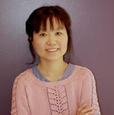An autoimmune disease, Hashimoto’s Thyroiditis, is a disorder that has a wide-ranging effect on the body. People suffering from Hashimoto’s experience a range of problems: weight gain, fatigue, depression, infertility, erectile dysfunction, macular degeneration joint and muscle pain.
What is Hashimoto Thyroiditis and how does it affect the body?
Hashimoto’s (named after its Japanese discoverer) is a disease in which a person’s immune system attacks its own thyroid gland – if left untreated it can lead to complete destruction of the thyroid gland.
Hashimoto's leads to hyperthyroid symptoms in the early stage because the damaged thyroid cells release the thyroid hormones abnormally. Later when most of the thyroid gland are damaged, patients show the symptoms of hypothyroidism– where the thyroid gland doesn't produce enough hormones: T3 and T4. As these hormones control the body's metabolism, it affects several areas – from heart rate to digestion.
The exact cause of Hashimoto's is not clear, but a person's genetic makeup, hormone imbalance due to the long term usage of birth control and environmental factors are believed to be responsible. The disease is also seven times more likely to affect women than men.
Common Treatment Options for Hashimoto’s
Traditionally allopathic treatment for Hashimoto's is about replacing hormones in the body with medication that manages metabolism. The drug of choice is a synthetic hormone called levothyroxine (Levoxyl, Synthroid, others), and treatment is usually lifelong and requires constant testing to adjust the dosage of the medication.
Using Acupuncture for Hashimoto’s
However, there are other highly successful ways to combat the disease – without adding chemical medication to our bodies.
Hashimoto's is a slow-moving disease, and if caught early, it is possible to halt its progress and manage it successfully with alternative methods. In fact, acupuncture treatment for Hashimoto’s has proved to be exceptionally beneficial.
Here is a look at how TCM (Traditional Chinese Medicine) & acupuncture treatment consider Hashimoto’s. In TCM (Traditional Chinese Medicine), hypothyroidism is manifested in three ways:
1. Spleen and Kidney Qi Deficiency – This refers to the early stages of hypothyroidism, and the main symptoms are fatigue, depression, sensitivity to cold, lack of appetite, constipation, weight gain, irregular menstrual cycles among others. At this stage, the acupuncture treatment works to strengthen and supplement Spleen and Kidney qi and resolve the dampness and phlegm.
2. Heart and Kidney Yang Deficiency – This is an advanced stage of hypothyroidism. Here the symptoms are more visible to the naked eye with symptoms such as puffy face and eyes, weight gain, dry skin and hair, no sweating, and hoarse voice. Patients also experience depression and cardiovascular complications because of the poor circulation.
3. Kidney Jing Deficiency - Late stage illness where the kidneys are severely compromised, and the marrow is also affected. Some of the symptoms are dizziness, headaches, poor memory, insomnia, hair loss, general weakness, infertility and ED etc.
With an experienced acupuncturist, treatment for Hashimoto’s improves energy flow to the thyroid. In TCM, hypothyroidism is described as Kidney and spleen deficiency. Inserting needles into specific acupuncture points to strengthen the spleen and kidney deficiency, reduces blocked heat, and revitalizes the Kidney Yin and Yang. Especially for subclinical hypothyroid condition, meaning TSH is slightly elevated (between 3 to 5), T3 and T4 are within normal range, acupuncture and herbal medicine are very effective. Acupuncture also helps sensitize the receptors of thyroid hormones, so patients can keep lower dosage of medications with less side effects.
Dr. Li Zheng is a licensed acupuncturist and herbalist and graduated from the Beijing University of Chinese Medicine with 11 years of formal training, including 6 years of residency. She holds a Ph.D. in neuroscience from the US and is a Harvard Medical School-trained researcher and a professor at the New England School of Acupuncture. Her two practices are located in Needham, MA, and Boca Raton, FL. She has 26 years of clinical experience. For more detail please visit our website https://bostonchineseacupuncture.org/.

Post new comment
Please Register or Login to post new comment.